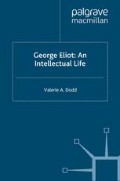Abstract
The melancholy experience of isolation united Mill and Carlyle in the years after the 1832 Reform Bill. The originality of Mill’s intellectual quest was fed by, and contributed to, his solitude. As the prospects for peaceful reform became less hopeful, and the Radicals a less effective force, so did Mill’s role as sympathetic critic of the group become less viable. He redefined the nature and function of speculation and found for himself a new role. Productive though his associations with the neo-Idealists and the Saint-Simonians temporarily were, they ultimately re-accentuated his solitary position. He could not exchange allegiance to Benthamism for adherence to another system. The middle of the road was a lonely, albeit fruitful, position. Mill’s isolation was, however, to some exent, a shared one, for the Radicals as a group came to experience an isolation akin to Mill’s after the 1837 election. In the 1830s, Carlyle, like Mill, was concerned with a critique of logical method closely allied to a contemplation of Radicalism. Carlyle’s isolation was, however, more profound than Mill’s. His nurturing within Scottish Dissent had encouraged his role as a propagandist for Idealism.
As human nature is eternally active, the innovator is but the conservative with more perplexing facts before him, and the conservative only the upholder of revolution who has now, at length, no more worlds to conquer.1
Access this chapter
Tax calculation will be finalised at checkout
Purchases are for personal use only
Preview
Unable to display preview. Download preview PDF.
Notes and References
Froude, Carlyle in London I, 115; John Nichol, Thomas Carlyle (1892; 1902) p. 173; Carlyle, Last Words p. 198.
Froude, Forty Years II, 476; Taine, L’Idéalisme anglais (Paris 1864) p. 8.
J. C. Morris, ‘Carlyle’s Translation of J. P. F. Richter’s Novels’, University of Bristol thesis (1967) p. 92.
Thomas Carlyle, ‘Christopher North’, The Nineteenth Century and After LXXXVII (January 1920) 107–8, 112.
Georg Lukács, The Historical Novel (1962; Harmondsworth, 1969) p. 208; Gooch, History and Historians in the Nineteenth Century pp. 78, 174.
Mill, ‘The Writings of Alfred de Vigny’, LWR XXIX (April 1938) 31; Mazzini, Essays p. 119.
Copyright information
© 1990 Valerie A. Dodd
About this chapter
Cite this chapter
Dodd, V.A. (1990). Carlyle (1834–1840); Alternative Revolutions. In: George Eliot: An Intellectual Life. Palgrave Macmillan, London. https://doi.org/10.1057/9780230372863_8
Download citation
DOI: https://doi.org/10.1057/9780230372863_8
Publisher Name: Palgrave Macmillan, London
Print ISBN: 978-1-349-38837-0
Online ISBN: 978-0-230-37286-3
eBook Packages: Palgrave Literature & Performing Arts CollectionLiterature, Cultural and Media Studies (R0)

